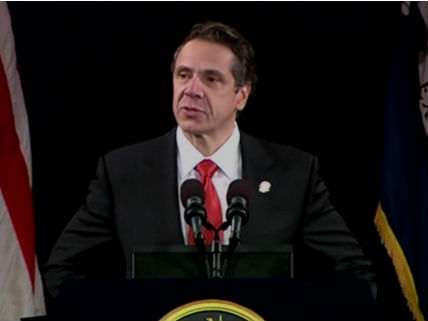Cuomo's Medical Marijuana Plan: The Mystery Deepens

Activists who were hoping to hear more information about New York Gov. Andrew Cuomo's medical marijuana plan in yesterday's State of the State speech instead got less, the Drug Policy Alliance notes:
Cuomo initially said he would share details about the plan during his state of the state address, but instead provided only limited comment. The Governor's policy briefing book, published during his speech, outlines what amounts to a medical marijuana research program, not the comprehensive system that patients need. Critical questions remain as yet unanswered—such as, which patients would be eligible, or where the marijuana for the program would come from. Administration officials have suggested they would obtain marijuana from the federal government or from supplies seized by law enforcement, but those options, while specifically outlined in the 1980 Olivieri law, are both unlikely and pose significant safety risks to patients. Additionally, public and private hospitals may be resistant to participating in a state program that instructs them to violate federal law.
As I pointed out on Monday, it seems unlikely that Cuomo will be able to obtain marijuana from the federal government, which would require the approval of the Food and Drug Administration, the Drug Enforcement Administration, and the National Institute on Drug Abuse, all of which insist that cannabis is not a legitimate medicine. Using marijuana seized from the black market or grown by the state, meanwhile, would involve state officials in direct violations of federal law. The only option that seems viable is the one used by every state that so far has allowed the medical use of cannabis: creating a medical exception to the state ban on marijuana, so that individuals can do the growing and distributing. But that would require action by the state legislature, while Cuomo claims he can provide patients with cannabis through executive action under existing law. This is looking more and more like a gesture rather than a policy.


Show Comments (4)